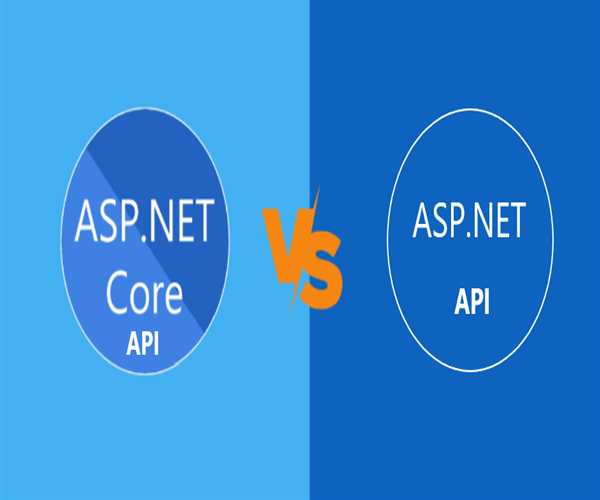In the world of web development, APIs (Application Programming Interface) play an important role in enabling communication between different software components or systems. Microsoft offers two popular frameworks for building APIs: ASP.NET API and .NET CORE API, with the evolution of technologies, the rise of .NET core as a flexible cross-platform framework. In this article we’ll discuss the difference between ASP.NET API and .NET CORE API, and also discuss their features, benefits and use cases.
NAME and EVOLUTION :
The first and the common difference lies in their names. ASP.NET API also known as ASP.NET Web API, was introduced as an ASP.NET framework, its the aim of building restful APIs. The most significant evolution came with the transition from the .NET framework to .NET core and eventually to.NET5(later .NET6), which marks the shift to a unified platform known as . NET.
Cross Platform Compatibility:
One of the unique features of .net Core Api is its cross-platform compatibility. Unlike ASP.NET API, which generally targets Windows environments, .NET CORE API has been introduced as platform-independent. This allows developers to build APIs that can seamlessly run on Windows, macOS, and various Linux distributions.
Performance and Efficiency:
.Net Core API has improved performance and efficiency as compared to ASP.NET API. The modular design and optimized runtime of .NET CORE make it run faster and use less memory. This is especially important when building high-performance APIs that need to handle a large number of requests concurrently.
Dependency Injection:
The .NET CORE integrates dependency injection as a first-class citizen. Dependency injection simplifies component dependency management, promotes modularity, and makes your codebase more maintainable and testable. Dependency injection is possible in ASP.NET API, it is more integrated and streamlined in the .NET CORE API.
JSON Serialization:
ASP.NET API and .NET CORE API both provide powerful JSON serialization, allowing the APIs to efficiently serialize and deserialize complex data structures. However, .NET CORE API includes the System. Text.json library by default, which is known for its high performance. ASP.NET API was traditionally based on Newtonsoft.json, which was also later used in .NET CORE before System.text.json became the default.
Web Hosting Model:
ASP.NET API mainly uses IIS (Internet Information Services) for web hosting, which is great for Windows environments. .NET CORE API offers more flexibility with a variety of hosting options including self-hosted, docker containers, and cloud platforms. This flexibility is particularly beneficial for microservices architectures and cloud-based applications.
Restful API Template:
When it comes to building
restful APIs, both frameworks provide templates to speed up the process. ASP.NET API templates have been around for a long time and provide a structured way to create RESTFUL APIs. The .NET CORE API patterns are more in line with modern development methods and RESTFUL design principles.
Version and Compatibility:
.NET CORE APIs focus on compatibility, allowing developers to easily migrate and update APIs without major code modifications. ASP.NET APIs, used in combination with the .NET framework, sometimes face compatibility and version control challenges, especially when switching between other versions of the .NET framework together.
Tooling and Community Support:
.NET CORE API benefits from the vibrant growing .NET CORE community. As a newer framework, it is continuously evolving with improved third-party tools, documentation, and packages. The ASP.NET API is still in active use today, but may not receive the same level of updates and improvements as the .NET CORE API.
In summary, the ASP.NET API and the .NET CORE API both are used to build APIs, but they differ significantly in terms of platform compatibility, performance, modularity, and storage options. The move from the ASP.NET API to the .NET CORE API, and now to .NET reflects Microsoft's commitment to modern, cross-platform, and efficient development methods. The choice between the two depends on your project’s requirements, the existing stack, and whether you want to take advantage of the latest advances in the .NET ecosystem.




Leave Comment